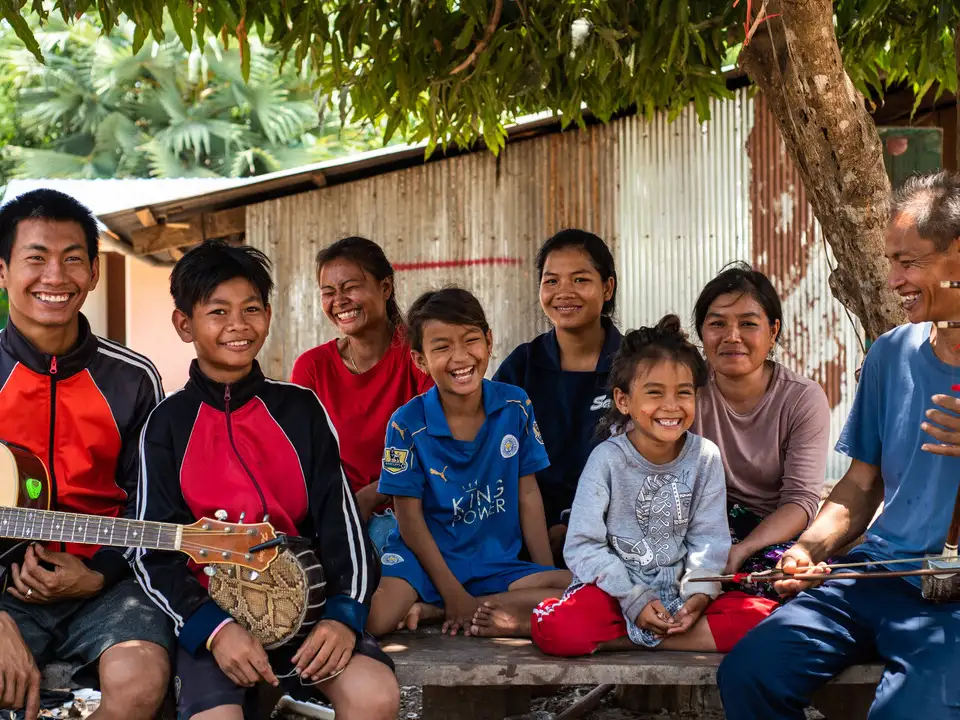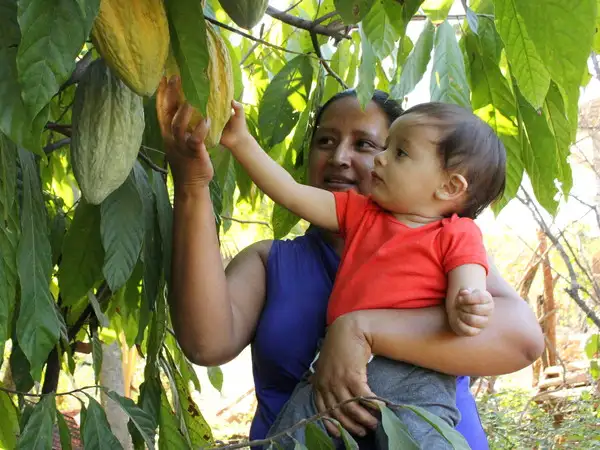Please note: CAFOD's programmes and projects in Cambodia closed at the end of 2024.

Located on the Indochinese Peninsula, Cambodia plays a crucial role in trade routes, linking China to India and south-east Asia.
This is a land of green plains, rice paddies and great rivers, frequently battered by monsoon winds and heavy rain.
During the 12th century, the Khmer empire constructed massive temple complexes like the world-famous Angkor Wat. In the 20th century, following colonisation by the French, Cambodia experienced occupation by the Japanese during World War Two, postwar independence and political instability.
Between 1975 and 1979, Cambodia was devastated by the reign of the Khmer Rouge. In just four years, at least 1.5 million Cambodians were killed – a tragedy from which the country still suffers.
A better world needs all of us. That’s why CAFOD has worked in Cambodia since 1980, throughout the country’s recovery process during the 1990s (during which the country reestablished constitutional government and free elections). Cambodia’s economy has steadily improved since.
Our impact in 2024
In 2024 we reached 1,594 people in Cambodia.
We helped 834 people living in northern Cambodia protect their forest environment by planting seedlings, building firebreaks, and developing alternative sources of income through culturally-sensitive ecotourism. Communities have created homestays, developed campsites, trained local guides, and built cultural centres to showcase local cuisine and traditional weaving.
We trained 625 smallholder farmers in new rice planting techniques to improve yields, organic vegetable production, and poultry and pig rearing. We also established agricultural cooperatives to help farmers achieve fair prices when marketing their harvest.
We established nine school-based organic farms to teach 135 children and their teachers about rice and vegetable production, and the importance of caring for the environment.
CAFOD's work in Cambodia
We believe that every single Cambodian deserves the opportunity to live with dignity and flourish.
That’s why, over the last several years, we worked together with nine local NGOs for an active Cambodian civil society that listens and responds to the voices of the poorest and most disadvantaged, especially rural and farming communities,
Together, we held the government and private sector to account for their actions, promoting just access to food, water and forest resources.
Together, we invested in programmes that strengthen communities with knowledge, skills, confidence, time and resources, so that all people are able to actively participate in and influence decision making that affects them.
How we responded
Together, we’re building a better world. In Cambodia, between 2018 and 2023, CAFOD contributed a total of over £1.6 million. These funds, donated from people like you, supported almost 200,000 Cambodians from poor and marginalised groups, such as women, children and Indigenous communities.
Projects in Cambodia
Four indigenous communities in Preah Vihear, Siem Reap and Ratanakiri provinces gained control over, and are now able to use, their natural resources (forestry, fishery and land) to improve their livelihoods and preserve their traditions and culture.
18 indigenous communities in Ratanakiri and Mondulkiri provinces increased their influence over land and forestry resources in their local communities.
Three indigenous communities in Preah Vihear province can protect their natural resources and traditions, including establishing eco-tourism (with a culture centre, homestays, forest walkways, traditional transportation and camping areas) to sustain their livelihoods and conservation activities.
Over 5,000 women and their families in Battambang and Siem Reap provinces increased their household income through diversifying their livelihoods and improving their access to markets. These women have strengthened their voices in decision-making processes and are promoting the elimination of domestic violence.
214 families received livelihood and health support during the COVID-19 pandemic.
Almost 1,200 people in Pouk district, Siem Reap province, have ensured increased and diversified incomes by adapting their agriculture practices to be more resilient to the worst impacts of the climate crisis.
37 villages in Kandal Stoeung district of Kandal province have improved hygiene, access to clean water and training in sanitation practices.
Five villages in Veal Veng district, Pursat province, and 10 villages in Rukh Kiri district, Battambang province, now have clean drinking water sources (piped water supply systems, storage ponds, drilled wells, rainwater harvesting/storage jars) and management structures have been established to ensure water safety standards are upheld.
14 water consumer farmer (WCF) communities now have drinking water, irrigation and sanitation – canals, wells, ponds and latrines – which support about 5,000 families (almost 25,000 people).

What we do
CAFOD is the official aid agency for the Catholic Church in England and Wales.
With your help, we reach out to people living in hard-to-reach places, in war zones and those who are discriminated against.

